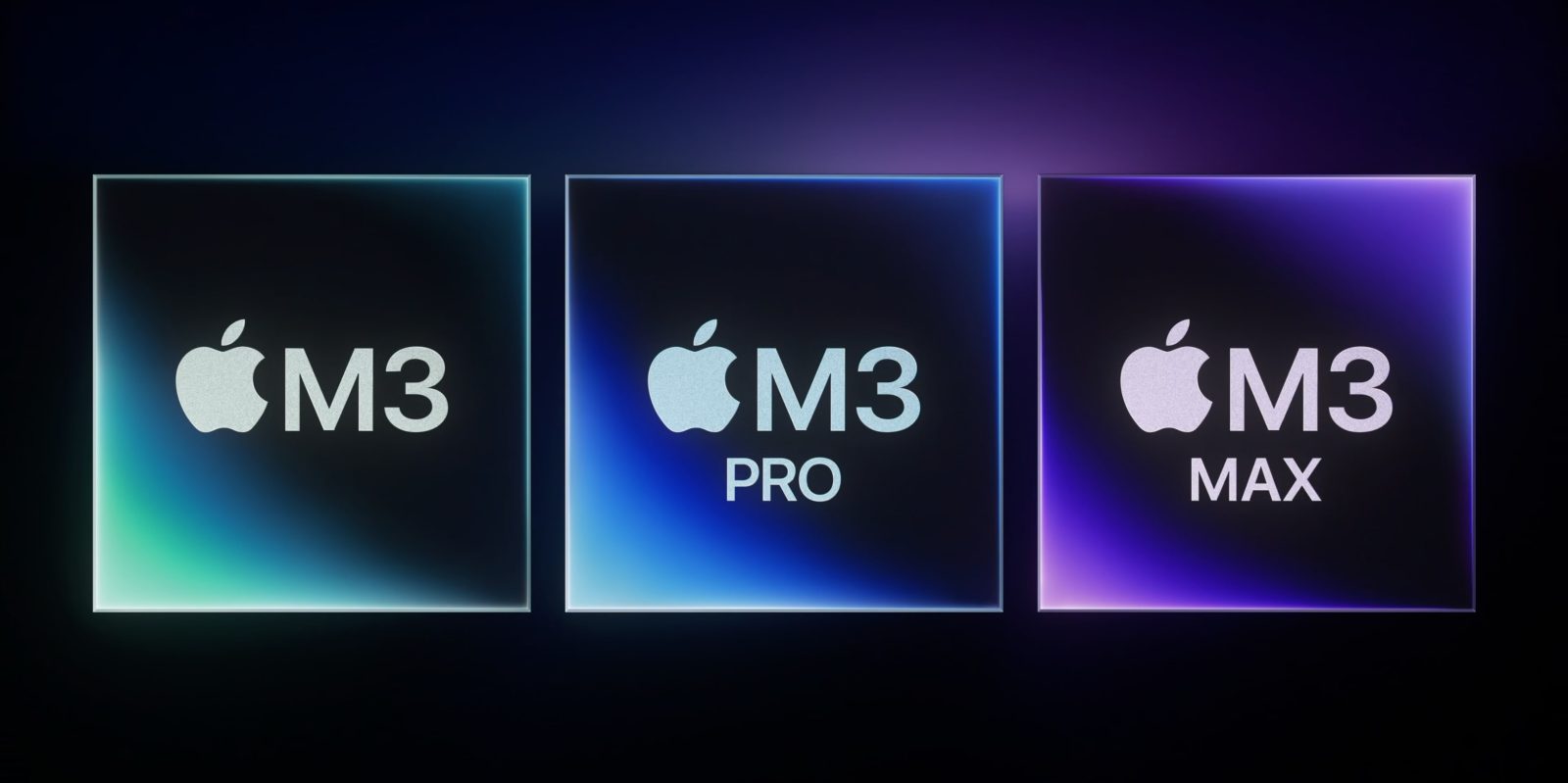
Apple unveiled its new M3 family of chips on Monday during the “Scary fast” event focused on the Mac. Ahead of the first orders arriving to customers next week, early benchmarks have now emerged to provide more details on the performance of the M3 processor.
As a refresher, Apple says that the M3 family of chips features efficiency cores up to 30% faster than the M2 family and up to 50% faster than the M1 family. The performance cores of the M3 chips are up to 15% faster than the M2 chips and up to 30% faster than the M1 family.
For the base model M3 chip, Apple says:
- The 8-core CPU is up to 35% faster than M1 and 20% faster than M2.
- The 10-core GPU is up to 65% faster than M1 and up to 20% faster than M2.
According to results that surfaced in the Geekbench database today, benchmark testing aligns with Apple’s performance claims. While Geekbench results can be faked, 9to5Mac has confirmed the legitimacy of these M3 test results.
The benchmark results revealed via Geekbench are from the base model M3 MacBook Pro. The results show a single-core score of ~3,000 and a multi-core score of around ~11,000.
These numbers are around 20% higher than similar test results from the base model M2 chip and around 30% higher than similar results from the M1 iMac.
- M1 iMac: Single-core at 2,300 and multi-core at 8,300
- M2 MacBook Air: Single-core at 2,600 and multi-core at 9,700
- M3 MacBook Pro: Single-core at 3,000 and multi-core at 11,700
As always, benchmark results aren’t necessarily good representations of real-world performance. They do, however, serve as a good way to hold Apple accountable for some of its claims about performance increases.
And in case you were curious, the last time Apple used an m3 chip in a laptop was the Intel m3 in the 12-inch MacBook in 2016. That machine scores around 700 in single-core and 1,500 in multi-core Geekbench testing.
Follow Chance: Threads, Twitter, Instagram, and Mastodon.
FTC: We use income earning auto affiliate links. More.




Comments